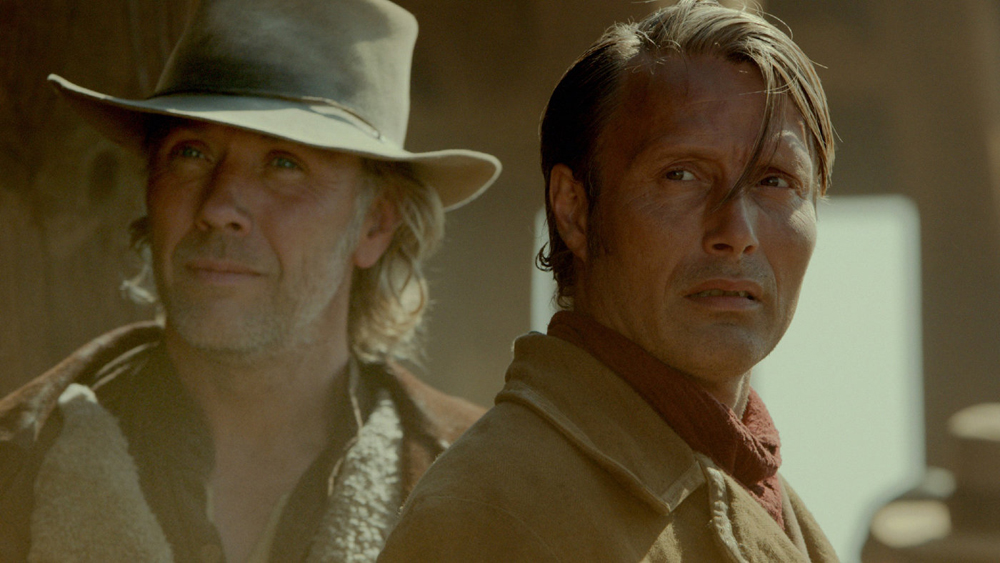It remains fascinating to watch the aftermath of the Dogme 95 movement, particularly amongst the filmmakers who willingly adhered to the stripped-down approach to filmmaking first proposed by Lars von Trier and Thomas Vinterberg that required a handheld camera, no unnatural embellishments such as props or artificial lighting and couldn’t be made in a specific genre. By those standards under which he made his first film “The King is Alive,” Kristian Levring wouldn’t have been able to make “The Salvation” and the result feels as though he’s making up for lost time.
Opening up with a bravura tracking shot through a train depot, Levring draws out a golden hue that could only belong to the American West, indicative of the promise it once held for a pair of brothers who came over from Denmark in 1864 to provide for their family back home. Seven years later, one of them, the enigmatic Jon (Mads Mikkelsen) is awaiting the arrival of his wife (Nanna Oland Fabricius) and son (Toke Lars Bjarke), ready for them to settle down on his farm. But shortly after easing his son’s fears of the kinds of animals he can expect on the frontier, he encounters a group of them in human skin on the stagecoach intended to take his family home, leading to a confrontation that once again separates them, perhaps permanently when Jon is thrown out of the stagecoach after killing one of the thugs.

Indulging in the kind of movieness of fellow one-time Dogme subscriber Susanne Bier, who has relished playing with color in her unapologetic melodramas, the two share another thing in common – co-writer Anders Thomas Jensen, who helps Levring engineer a thriller built upon a war of words, as bloody as it gets, with everyone in Black Creek preying on each other’s perceived weaknesses and the film finding sparks when they underestimate one another. Mikkelsen fits the bill nicely as the stoic and reluctant gunslinger with an appropriately scenery-chewing foil in Morgan while an eclectic supporting cast that includes Jonathan Pryce, former soccer star Eric Cantona and Eva Green, who isn’t allowed to bring much more than her icy gaze to the proceedings as the mute wife of Delarue’s deceased brother, add flavor to the film but largely serve as bystanders in every way.
With such an impressive introduction, “The Salvation” promises something more satisfying than it actually becomes, but nonetheless stays interesting for fans of the genre who will enjoy the modern twists Levring imposes on the last man standing formula and those who simply like a good old fashioned, psychologically charged shoot ‘em up. There may be great ugliness lurking inside the soul of every man walking around in “The Salvation,” but Levring brings it out beautifully.
“The Salvation” opens on February 27th in Los Angeles at the NuArt and New York at the Sunshine Cinema and will be available on VOD.




